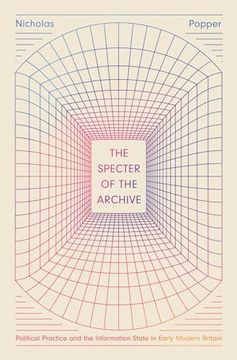Share
The Specter of the Archive: Political Practice and the Information State in Early Modern Britain
Nicholas Popper (Author)
·
University Of Chicago Press
· Paperback
The Specter of the Archive: Political Practice and the Information State in Early Modern Britain - Nicholas Popper
£ 23.40
£ 26.00
You save: £ 2.60
Choose the list to add your product or create one New List
✓ Product added successfully to the Wishlist.
Go to My WishlistsIt will be shipped from our warehouse between
Friday, May 31 and
Monday, June 03.
You will receive it anywhere in United Kingdom between 1 and 3 business days after shipment.
Synopsis "The Specter of the Archive: Political Practice and the Information State in Early Modern Britain"
An exploration of the proliferation of paper in early modern Britain and its far-reaching effects on politics and society. We are used to thinking of ourselves as living in a time when more information is more available than ever before. In The Specter of the Archive, Nicholas Popper shows that earlier eras had to grapple with the same problem--how to deal with too much information at their fingertips. He reveals that early modern Britain was a society newly drowning in paper, a light and durable technology whose spread allowed statesmen to record drafts, memoranda, and other ephemera that might otherwise have been lost, and also made it possible for ordinary people to collect political texts. As original paperwork and copies alike flooded the government, information management became the core of politics. Focusing on two of the primary political archives of early modern England, the Tower of London Record Office and the State Paper Office, Popper traces the circulation of their materials through the government and the broader public sphere. In this early media-saturated society, we find the origins of many issues we face today: Who shapes the archive? Can we trust the pictures of the past and the present that it shows us? And, in a more politically urgent vein: Does a huge volume of widely available information (not all of it accurate) risk contributing to polarization and extremism?
- 0% (0)
- 0% (0)
- 0% (0)
- 0% (0)
- 0% (0)
All books in our catalog are Original.
The book is written in English.
The binding of this edition is Paperback.
✓ Producto agregado correctamente al carro, Ir a Pagar.

